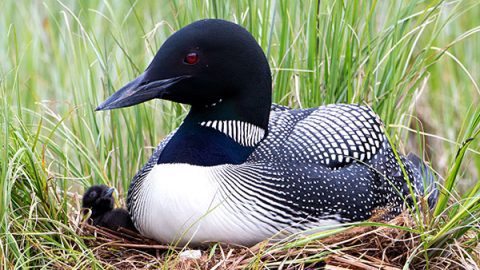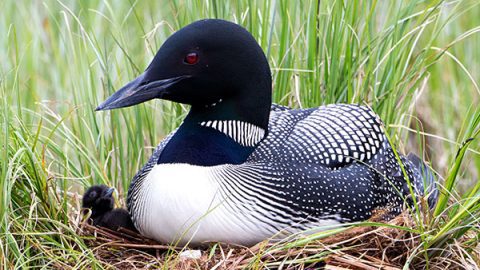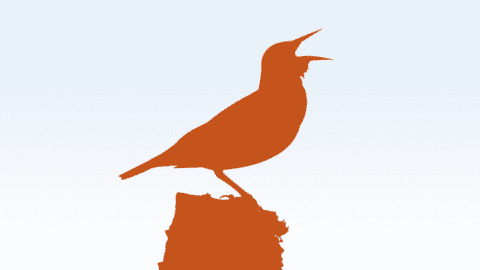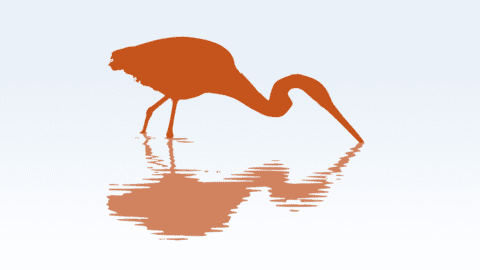Recovering America’s Wildlife Act: Bill Would Boost Bird Funding
By Gustave Axelson
June 8, 2022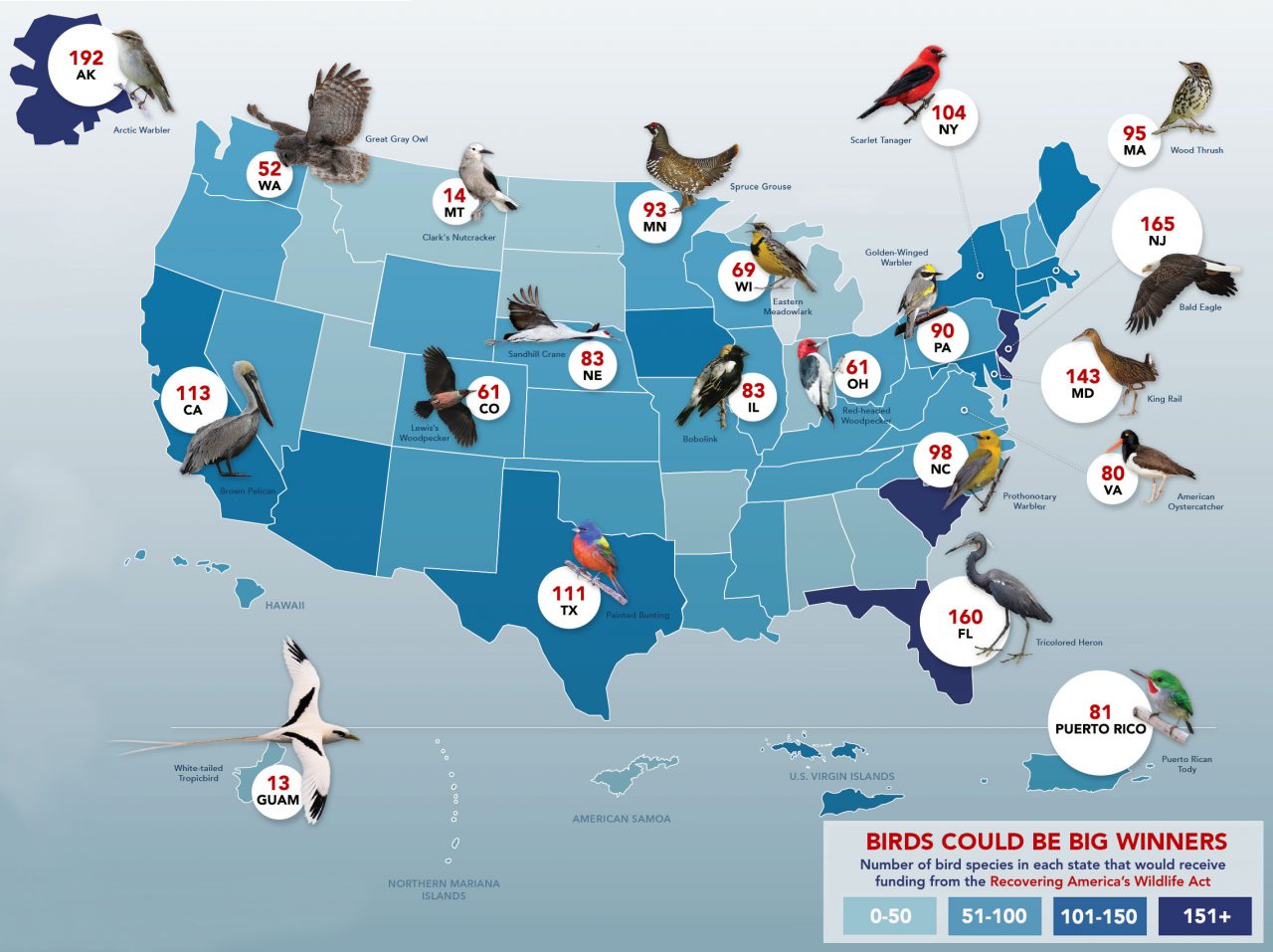
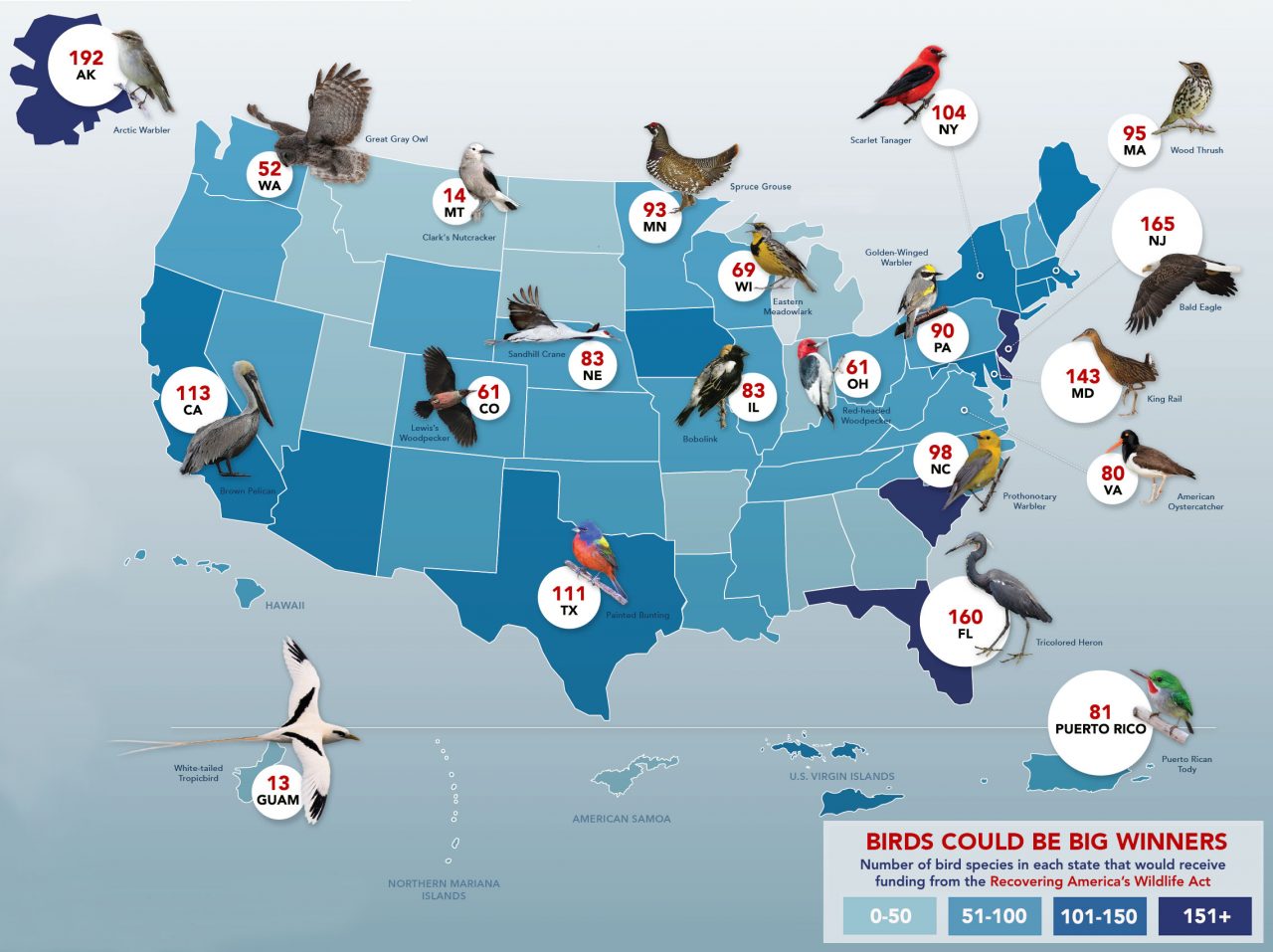
Originally published in the Summer 2018 issue of Living Bird magazine; updated December 2021. Subscribe now.
[Updates: In June 2022, the Recovering America’s Wildlife Act is likely to come up for votes in the full House and full Senate. In 2021, the Act was reintroduced into the House of Representatives by Rep. Jeff Fortenberry (R-NE) and Rep. Debbie Dingell (D-MI) in the 117th United States Congress. A counterpart Senate bill was introduced by Sen. Martin Heinrich (D-NM) and Sen. Roy Blunt (R-MO).]A bipartisan bill introduced in the House of Representatives offers a new funding stream for state wildlife programs—including efforts to help hundreds of bird species in decline that need urgent conservation action.
Dubbed the “Recovering America’s Wildlife Act” (or HR 4647), the bill proposed by Representatives Jeff Fortenberry of Nebraska and Debbie Dingell of Michigan would dedicate $1.3 billion of preexisting federal revenues annually toward conservation in all 50 states and five territories.
Game species in the U.S. currently benefit from two revenue streams that come from hunting—the Pittman–Robertson excise tax on sporting arms and ammunition and the federal Duck Stamp program. RAWA would create the first dedicated funding stream for nongame wildlife. RAWA funds would grow federal funding for state and tribal wildlife conservation grants by 2,000%—a gamechanger for locally led habitat conservation programs. (Find more details about how RAWA could benefit wildlife, improve infrastructure, and help local economies, in this opinion piece by Dr. Amanda Rodewald, director of the Cornell Lab’s Center for Avian Population Studies.)
Game species in the U.S. currently benefit from two revenue streams that come from hunting—the Pittman–Robertson excise tax on sporting arms and ammunition and the federal Duck Stamp program. RAWA would create the first dedicated funding stream for nongame wildlife. Without tapping into taxpayer money, RAWA funds would access a fraction of the revenues the government receives from energy and mineral leases on federal lands and waters.
The act aims to help stem population declines for more than 12,000 species of fish and wildlife, including more than 800 birds, in an effort to keep them off the endangered species list. The idea for a new conservation funding stream came from a national panel of business and conservation leaders chaired by Bass Pro Shops founder John L. Morris and former Wyoming governor Dave Freudenthal. (Cornell Lab of Ornithology director John Fitzpatrick also participated in the panel, along with executives from the National Wildlife Federation, Ducks Unlimited, Audubon, Shell Oil Company, Hess Corporation, and Toyota.) Learn more about the bill.


All About Birds is a free resource
Available for everyone,
funded by donors like you


